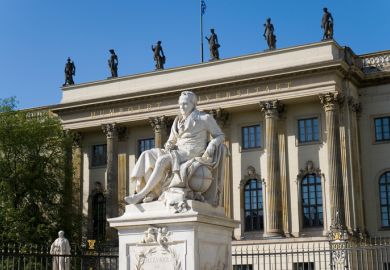This well-researched and perceptive book puts paid to the idea that it is the Chinese Government's policy to separate politics from sport in general and the Olympics in particular. If critics of the Chinese Government foisted politics on the Olympics when they disrupted the international leg of the Olympic torch relay earlier this year, they were in good company. The Beijing Olympics is a highly politicised matter for the Chinese Government. From the moment Beijing made its bid for the 2008 Olympics, it astutely played politics. To disarm the International Olympics Committee and the rest of the world in order to secure the Games, it presented the slogan "New Beijing, Great Olympics" while at the same time reassuring the Chinese people that the real slogan was "New Beijing, New Olympics". Beijing certainly saw fit not to share all its intentions with the IOC.
The Beijing Olympics is the occasion the Chinese Government has chosen to "communicate with the world about its vision of the future and the very course of its internationalization", as Xu Guoqi notes. It is meant to be the coming-out party that showcases China's achievements under the leadership of the Communist Party in the post-Mao era. As such, failure will not be tolerated, and it would have dire implications for at least some of its current leaders if not for the legitimacy of the party itself. Once the political importance of the Olympics for the Communist Party leadership is understood, it is easy to see why the Olympics is such a crucial event for the Chinese Government, and one for which no resource will be spared and no attempt to tarnish it will be tolerated. Adhering to the Olympic principles is a matter of distinctly secondary importance.
Ensuring the success of the Olympics is the first and foremost political mission of the Chinese Communist Party in 2008. If fulfilling that aim should require violating the human rights of Chinese citizens, be they the majority Han people or minorities such as the Tibetans, such acts are patriotic duties rather than failings, in the view of the party. And if mobilisation to create a showcase Games should cause havoc - as it is manifestly doing - for the many foreigners living and working in China, it is clear that they are expected to accept this in good grace for the good of their long-term friendship with China.
Xu's highly readable book not only tells the story of the Beijing Olympics and how they are inextricably intertwined with politics, but also gives an historical sweep in explaining how modern sport came to be embraced in China and how it has always been mixed up with politics. This applied even before the Communists came to power in 1949.
In putting the 2008 Games in context, Xu also shows that divorcing politics from the Olympics has always been more an aspiration and a high principle than a reality. He reminds readers that when the modern Olympics was founded in 1894, its founder had intended it to be "a mixture of nationalism and internationalism". Indeed, in its century-long history, the most dragged-out and controversial political issue for the Games was whether the People's Republic in Beijing or the Republic of China on the island of Taiwan should represent China at the Games after 1949. Even Canada, a liberal democracy, blatantly played politics when it decided to deny Taiwan participation at the 1976 Montreal Games in order to curry favour with Beijing.
There are a few small bones that China specialists may wish to pick with Xu, but they are about nuances and need not concern the general reader. This is a thoughtful and highly informative book that all interested in the Beijing Olympics will find rewarding, and it should be required reading for journalists covering the 2008 Games.
Olympic Dreams: China and Sports, 1895-2008
By Xu Guoqi
Harvard University Press
392pp, £19.95
ISBN 9780674028401
Published 13 May 2008
Register to continue
Why register?
- Registration is free and only takes a moment
- Once registered, you can read 3 articles a month
- Sign up for our newsletter
Subscribe
Or subscribe for unlimited access to:
- Unlimited access to news, views, insights & reviews
- Digital editions
- Digital access to THE’s university and college rankings analysis
Already registered or a current subscriber?



